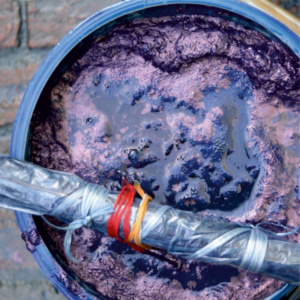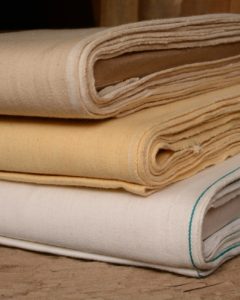Description
SKU: MWHD-FBD-10D10-CRB-NI
Premium Eco-friendly, Hand-woven Selvedge Denim fabric, woven out of 100% cotton mill-spun yarn. The fabric is offered in a standard width of 40 inches (approx. 1 meter), and weighs approx 9 oz / sq yard. Most suitable for making luxury denim apparel like selvedge cut jeans, jackets and coats with selvedge detailing, trousers, kimonos, dresses and much more.
This is a completely artisanal fabric, woven by master crafts-persons on traditional wooden frame, hand & foot operated looms, without using electricity, at any stage of the process.?The fabric is hand-dyed with natural / vegetable dye, extracted from indigo plant, at normal temperature, without burning any fuels.
It has very high breathability, is friendly for the human skin, and very comfortable for the wearer, in all weathers.
This fabric is also available in the organic cotton variety, on specific requirement.
SKU: MWHD-FBD-10D10-CRB-NI
Out of stock
SKU: MWHD-FBD-10D10-CRB-NI
| Width | 40 inches (100 cm) |
|---|---|
| Weight | 9 Oz / Sq Yard (300 GSM) |
| Applications | Blazers, Capris, Dresses, Jackets, Jeans, Pyjamas, Shorts, Skirts, Tops, Trousers |
| Color | Carolina Blue |
| Warp | 10s Mill-spun Cotton Yarn (Undyed) |
| Weft | 10s Mill-spun Cotton Yarn (Undyed) |
| Construction | 78 X 38 |
| Dye Source | Indigo Plant |
| Dye Type | Natural / Organic / Vegetable Dye |
| Dyeing Method | Cold Dyeing |
Generally, since denim conventionally is a warp-dyed fabric, we dye the warp yarns in desired colors and use weft in udyed state for making handloom / khadi selvedge denim fabric. As a result of this, the face of the fabric appears to be colored, and the back appears to be white or less colored than the front.
In the case of “fabric dyed” items, the fabric is woven using un-dyed yarn in both warp and weft, to make an off-white / creamish colored cloth. This fabric is then prepared for dyeing.
The dyeing of this fabric is done using colors extracted from various organic waste materials, like marigold petals, eucalyptus leaves, pomegranate rind, onion skins, madder roots, and also the dye extracted from indigo plant.
The dyeing is carried out manually, without using any machinery, and is therefore done in small lots only. In the resulting fabric, the front and back are not very different in color.

The magic of indigo is not new. Indigo is among the oldest dyes to be used for textile dyeing and printing. A variety of plants have provided indigo throughout history, but most natural indigo was obtained from those in the genus Indigofera, which are native to the tropics, notably the Indian subcontinent.
The dye extracted from the indigo plant is first reduced to in an alkaline vat, the material is then dipped into the vat, several times, as per the depth of color required, and exposed to air in between every two consecutive dips. The color changes from yellow to green to blue on oxidation.
We extensively use natural indigo, to dye yarn as well as fabric, in a wide range of shades, from light to dark. The dyeing is done in a cold dye bath.
We also offer indigo with minimal dry crocking, in both yarn-dyed and fabric-dyed categories.
 A selvedge or selvage is a “self-finished” edge of fabric, keeping it from unraveling and fraying. The term “self-finished” means that the edge does not require additional finishing work, such as hem or bias tape, to prevent fraying.
A selvedge or selvage is a “self-finished” edge of fabric, keeping it from unraveling and fraying. The term “self-finished” means that the edge does not require additional finishing work, such as hem or bias tape, to prevent fraying.
In woven fabric, selvages are the edges that run parallel to the warp (the longitudinal threads that run the entire length of the fabric), and are created by the weft thread looping back at the end of each row. This looping is possible only if the weaving is done using a “shuttle”, which carries the weft yarns from one end to the other and then returns.
After the introduction of shuttle less weaving machines in 1950s, almost all fabrics – including denim – have a frayed edge, because the weft yarn is cut at the edge of the fabric, and no looping happens.
Our entire collection of eco-friendly denim fabric is made on shuttle handlooms, and therefore comes with a neat and clean, well formed selvedge along both the edges of the fabric.
Click here to know more about selvedge denim.